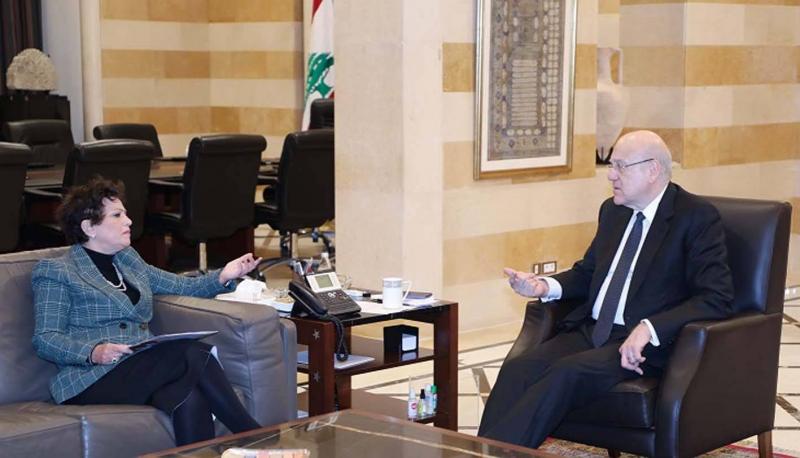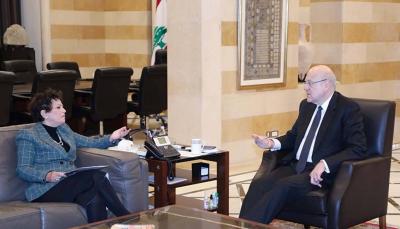The Deputy Special Coordinator of the United Nations in Lebanon, Resident Coordinator for UN Activities, and Humanitarian Coordinator Najat Rashdi, visited the three presidents yesterday. She began her visits with a meeting with President Michel Aoun, where she presented the key points of the "UN Strategic Framework for 2022-2026" and the areas in which the UN intends to support the Lebanese government and people, in addition to the expected outcomes of the provided assistance and programs. Rashdi indicated that "the framework describes the unified vision of various members of the UN family in Lebanon to support Lebanon's priorities in security, politics, human rights, development, and humanitarian matters."
The President expressed his appreciation for the role played by the UN in helping Lebanon overcome its economic, social, and life crises, particularly praising "the significant effort made by Dr. Rashdi, especially in coordinating the works of around 26 UN agencies, programs, and funds in Lebanon." President Aoun hoped the framework would be productive, especially given the large challenges faced by Lebanon on various levels, particularly in education, health, and the struggles of the private sector resulting from the current economic and financial crisis, which are priorities that must be revived.
After the meeting, Rashdi stated: "I held a meeting with the President and his team to present to him the 'new UN framework' regarding developmental priorities for the next three years. For Lebanon, we are not just talking about humanitarian assistance but also support for the private sector and economic and social recovery services. It was clear in his directives regarding priorities, as it is important for him to support basic services for the Lebanese people, including health and education, alongside the energy sector, to ensure that all Lebanese have access to essential services, and to work on reviving the private sector to create job opportunities that contribute to overall economic recovery."
She added: "These are clear directives for us, and we will begin working with the government and the parliament in the coming weeks and months to finalize this framework to serve as the UN's support foundation for the Lebanese state." In response to a question about whether this framework would lead to a halt or reduction in the assistance provided by the UN to Lebanon in general, she replied: "The UN never stops the assistance it provides. As long as it has started providing assistance, it means there are needs, and today there is no room to stop it. What matters to us, according to the President's directives, is that we do not talk only about humanitarian aid, but that we transcend it and advance into a developmental sector, so that many resources needed by citizens for development are secured. The President's stance was clear regarding focusing on the basic services for Lebanese citizens such as education, which shapes the country's future, as well as health, to ensure citizens can access medication and health services. If a patient cannot obtain medication, that does not help in building a future for the country. These were clear directives from the President, and we will work within this framework, continuing our consultations with the government, the parliament, civil society, the international community, and the private sector."
Rashdi also visited Speaker of the Parliament Nabih Berri at the second presidency headquarters in Ain el-Tineh, where they discussed areas of cooperation between the UN and the Parliament. She then met with Prime Minister Najib Mikati in his office at the Grand Serail, where they reviewed the general situation in Lebanon and ways to support the Lebanese people during this phase.




